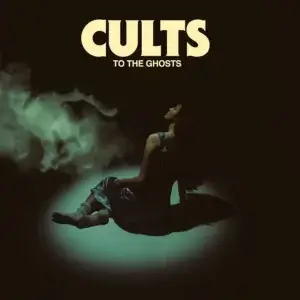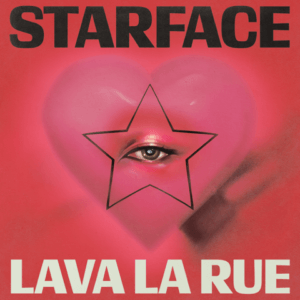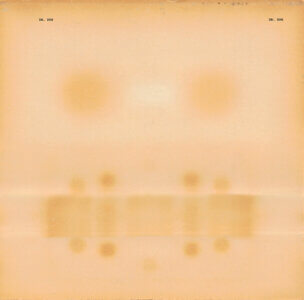Amblare honour their power trio spirit

Matt McGuyer didn’t set out to deliver the self-titled debut album from Amblare as a group project. While the Evansville, Indiana-based musician has most recently been occupying the drum kit for metal unit Null Valley, and playing guitar with are-they-emo veterans Mock Orange, when he started crafting an especially ‘90s-indebted batch of post-hardcore crushers at home, the self-described “lone wolf” figured he was putting together his first-ever solo album. Divine intervention, you could argue, changed that for McGuyer. Big time.
The path to Amblare begins with a series of drum and riff ideas McGuyer began chronicling on social media about a decade ago, to drum up a bit of local interest. “They say to put yourself out there,” he recalls. “You’ve got to at least do that in this climate of social media, so I started figuring out how to record videos. Some were good; some were mediocre; some were terrible. I started putting it all up to give a taste of what it was I was doing, and where I was coming from.”
To the musician’s surprise, an unsolicited Facebook DM from iconic Hum drummer Bryan St. Pere — who also happened to live in Evansville — gave McGuyer both a much-needed morale boost, and an unexpected new songwriting partner. St. Pere was the one to suggest they jam together. What’s wild is that the concept of St. Pere — the mountain-leveling drum god behind Hum landmarks like You’d Prefer an Astronaut and Downward is Heavenward — had been rattling around in the back of McGuyer’s mind as a possible alternate percussionist.
“I’ve always respected his drumming, so that was just kind of my joke: the universe as my witness, unless that guy wants to jam with me, I’m just putting a record out [myself]”.
As the pair built up a rapport, they contacted Alex Wallwork — also a bassist with fantasy-themed stoner unit Faerie Ring — to provide the low-end. Through their eight-song debut, Amblare deliver moments of mega-distorted, Hum-like grooving (“Starlight”); meter-vaulting, clean-channel moodiness (“Iridesce”); and overwhelming, incandescent gloom (“Mine’d”). McGuyer wrote the drop-tuned, melancholy sludge-gaze standout “Undivided” to showcase the speaker-pushing, slow-mo pound of St. Pere’s percussive nature, while Wallwork contributed a chunky, feel-good rocker called “Flyin’”. If Amblare began with a lone wolf, McGuyer was happy to produce the LP with the rest of this pack.
“I’ve always been that guy: ‘No, no…you’ve got to do it this way,’” he suggests of his pre-Amblare inclinations. “This band was a chance for me to trust the two musicians I was playing with whole-heartedly. I knew when to step back and let them go for it. What a beautiful end result. I’m so thankful that I got to play with those two guys.”
Amblare primarily recorded at Hum bassist-vocalist Matt Talbott’s Earth Analog Recording Studio in 2019 and 2020, finishing the bulk of the project before St. Pere’s tragic, unexpected death in 2021. The Amblare project marks St. Pere’s final recordings. With Amblare now set to unleash their new, and likely only LP, McGuyer filled Northern Transmissions in on the pros and cons of the social media age; the influence of both Hum and his father’s old psych band; and more.
This interview has been edited and condensed for flow and clarity.
NORTHERN TRANSMISSIONS: How different would this Amblare record have been, had you played drums on it? Or rather, what are some differences between how you and Bryan approached the kit?
Matt McGuyer: I was always a drummer who was too loud for my town. Most people I play with are like, “man…you need to be quieter.” Everything’s too heavy; too bombastic. I like big flams on the toms and the snares. Nothing complicated, just really using tension and release to my advantage. Bryan’s that same way. When I first heard him play, it’s almost like it gave me permission to embrace the fact that I am too loud.
Where we’re different [is that] I use click tracks when I record. I like [it] really tight. No rushing, no slowing down — [just sitting] right in the pocket the whole time. Bryan was very expressive [with his playing], and the music benefitted in the way that [he made] it much more organic, and so full of the feels. It felt important when he played the drums! He had the freedom to do whatever he wanted with [Amblare], of course. The way he worked his cymbal patterns, how he used his toms, or a single pedal…he did it in a way that felt so real.
NT: As a vocalist, you use this unique, evocative, and kind of weird turn-of-phrase in the chorus of “Underest,” where you’re hoping to escape your “shithouse ways”. Is that a regular saying where you’re from? And how does that saying apply to the song?
MM: That was just something that hit me one day. It’s behaviour that belongs in a shithouse — despicable; unnecessary. It’s probably cliché at this point, but the song is really about social media and how it’s altered human interaction. As we all know, people are bold [online]. There’s that saying: the internet made it ok to disrespect someone without [the threat of getting] punched in the face. At the end of the day, it’s about checking yourself. Like, ‘Hey, let’s not be the way we are on the internet.’ It’s about myriad bad behaviours — treating yourself bad; treating others bad — and wanting more out of [life] than just “I gotta prove my point.” Exercising humility is a lost art in society. People are not ever willing to say, “You know, I could be wrong here.”
NT: This is possibly taking your words out of context, but considering Bryan’s passing, can you reflect on the line “We know that this won’t last forever” from “Weak End”? How does that sentiment sit with you now?
MM: It’s important to mention that all of these lyrics took on a different meaning after Bryan passed. They could be taken to tie into that, but they were all written two years before we even started recording.
The part about “this isn’t forever” is more about suffering depression for the first time in your life, and [knowing] you’re the weak end of … your personal relationships. [But] some of that can be paranoia. The things that hurt, and the things that make us feel like our life isn’t worth living…they’re only temporary. That doesn’t last forever. Neither does life, itself. Everything living dies. So, it’d be a good idea to be as real as you can with people. Even if being extremely real and honest [is] very uncomfortable for a lot of people. I think it should be something that we’re willing to admit, that we’re all a little bit messed up. That’s life!
NT: While it’s a song that touches on depression, there’s a moment just after that big wah guitar solo where you hear someone letting out this cathartic, celebratory “woo” in the background. Do you recall how that moment played out in the studio?
MM: I left that in there. I wasn’t happy with all of my vocals, at first. So, towards the end of getting everything together, we were finishing vocals in Bryan’s basement [instead of at Earth Analog]. That “woo” is me. I’d just finished my best take, which was probably the fifth or sixth take of the song that night. Bryan was sitting at his computer. I finished some note hold — like, really pushing it — so I was out of breath and let out this little “woo”. He was laughing. It was the cutest thing ever, how endearing he was. He loved to build up the people around him. You can’t really hear this, but after the “woo” you hear him laughing and saying “strong work!” And then the song takes on a somber guitar part. [Bryan] knew how to make you feel good.
NT: How important was it for you and Alex to finish up this record?
MM: It’s the most important thing. You know, Hum’s Downward is Heavenward is probably my favourite record of all time. I listened to that for a year-and-a-half straight. It only left my CD player [for] Ride the Fader by Chavez, which was the next one I listened to for a year. I don’t listen to a lot of stuff. I find a gem, and it hits me until I wear it out.
So, Bryan had Hum, and that was an important thing to him, but at the point in his life when we were working on Amblare, he was always excited and dreaming with us about what we could do. He booked the studio time; he paid for the studio time. This was something that meant a lot to him.
The most important thing was to put it out there, mainly because we’re fans of his drumming. I mean, his drumming and Hum’s music is very important to Alex and I on a spiritual level, as silly as that could sound to some people. And the drumming on this is so excellent and moody. When I hear the songs, I don’t think “here’s this part I wrote!” I just hear my favourite drummer expressing himself.
NT: Did working with Hum’s Matt Talbott — obviously a longtime friend and collaborator of Bryan’s —bring extra resonance to seeing this project through?
MM: Having him there was a very soothing thing. He’s very even keeled, very laid back. Hilarious as all get out. And we got to meet all the [Hum] guys. Tim [Lash], Hum’s guitar player, stopped by to hear what we were doing with the guitars at one point. They were all really supportive about what Bryan was doing.
To have Matt at the helm in the studio that he built was awesome. He would have to leave some nights to tend bar at the bar he owns, so they had another engineer buddy of theirs come in and take over. There were also several nights where it was just the three of us [running] it together, because Matt showed us how to run the tape machine. Having Matt there was intimidating and inspiring for me, because I’m a fangirl, always [laughs].
NT: On the point of inspiration, you recently made an Instagram post talking about a vinyl repress of your dad’s old band, B.F Trike. You brought up how your father might’ve influenced the way you “write songs under three minutes long.” Maybe that brevity doesn’t speak to everything on this Amblare record — like the extended sludge of something like “Mine’d” — but can you tell us a bit about how your father’s songcraft might’ve impacted something like the record’s opening “Starlight”?
MM: Dad did that band back in ’71. You name a big band back in the ‘70s and they opened for ‘em. They toured with Ten Years After; Mountain; Mott the Hoople; the Vanilla Fudge; Johnny and Edgar Winter; Santana. I just found out the other day that they opened up for the Ohio Players They were supposed to open for James Brown here in town, but they chose a club gig because they could make more money. He was doing all that while teaching throughout the week, and raising three kids.
Growing up, my whole childhood was [listening to anything] from Kraftwerk, to Jimi Hendrix, to Bachman Turner Overdrive. My dad had a huge stereo, and it was always rumbling the house. B.F. Trike was always played. I was born in ’77, so I was never around to hear how it was created. And my dad never wrote after that. He just played in bar bands.
With “Starlight” being barely two minutes long, I shared it with some friends I trusted [and said] “I just want to leave it short, but do you think I should take it somewhere else?” A couple people were like, “add a big chorus in,” but once Bryan heard it, he was like “no, leave it this way.” I guess I just embraced the short song. I’m a big Tool fan, but I also love something that comes in, hits you where it counts, and then is gone as quick as it came in. There’s something exciting about that. I love music when its urgent.
Dad’s music with B.F. Trike is engrained in me; it runs through my blood. I’m actually going to record that album by myself, but in Drop D. I’ll make it harder and more rockin’, but mostly keep everything the same. My dad and the bass player, Big Al, want to put that out as well. There’s going to be a “McGuyer covers B.F. Trike” thing coming out eventually, but my dad’s told me “You get your solo record done [first]” — because I’m still doing my solo record.
NT: Getting back to Amblare, you’ve got a hometown record release coming up. Have you locked into a new full-time drummer?
MM: We have a good friend named Andrew Fender playing drums. He actually has a band called Brim that I drum in, and Alex and Andrew have played together before. [Still,] I’m weird about bands that go away and reform, or where there’s only one or two members left and it doesn’t sound the same. I get it. Natural evolutions happen, but to capture that original magic is impossible without the same people involved. We were on the fence about doing a record release show, but I know Bryan would have been like, “You’ve got to get out there and rock the community! Let there be rock!”
Andrew also knew Bryan. They hung out. Bryan would go see him play, and would be like, “I think I’m going to give him one of my crash cymbals.” He always wanted to help people in the scene, and musicians he saw something in. One of those guys was Andrew.
Right now, Alex and I are Amblare. There’s no official third member, but Andrew is filling [Bryan’s] shoes to pull this off live as best we can. And if we get asked to do something other than the release show, that’s awesome. I’m sure we would do it. We would love to go out and do a tour, just to support the record, but once that’s all said and done, [Amblare’s] done. There won’t be a continuation of the Amblare name. Alex and I may press on together, though. I may sweet-talk him into playing live for my solo stuff.
Order Amblare by Amblare HERE
Latest Reviews
Tracks
Advertisement
Looking for something new to listen to?
Sign up to our all-new newsletter for top-notch reviews, news, videos and playlists.





